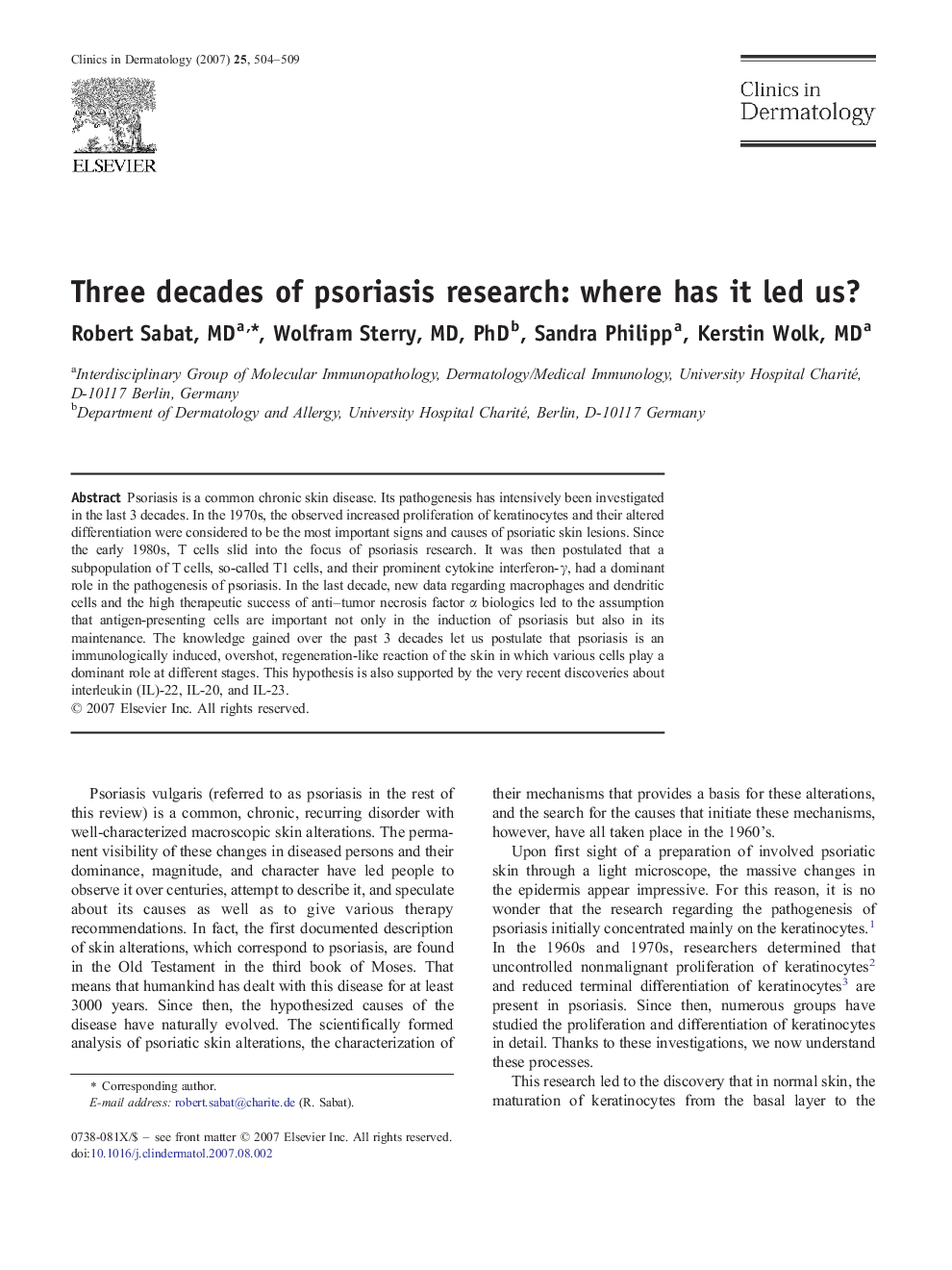| Article ID | Journal | Published Year | Pages | File Type |
|---|---|---|---|---|
| 3195194 | Clinics in Dermatology | 2007 | 6 Pages |
Psoriasis is a common chronic skin disease. Its pathogenesis has intensively been investigated in the last 3 decades. In the 1970s, the observed increased proliferation of keratinocytes and their altered differentiation were considered to be the most important signs and causes of psoriatic skin lesions. Since the early 1980s, T cells slid into the focus of psoriasis research. It was then postulated that a subpopulation of T cells, so-called T1 cells, and their prominent cytokine interferon-γ, had a dominant role in the pathogenesis of psoriasis. In the last decade, new data regarding macrophages and dendritic cells and the high therapeutic success of anti–tumor necrosis factor α biologics led to the assumption that antigen-presenting cells are important not only in the induction of psoriasis but also in its maintenance. The knowledge gained over the past 3 decades let us postulate that psoriasis is an immunologically induced, overshot, regeneration-like reaction of the skin in which various cells play a dominant role at different stages. This hypothesis is also supported by the very recent discoveries about interleukin (IL)-22, IL-20, and IL-23.
